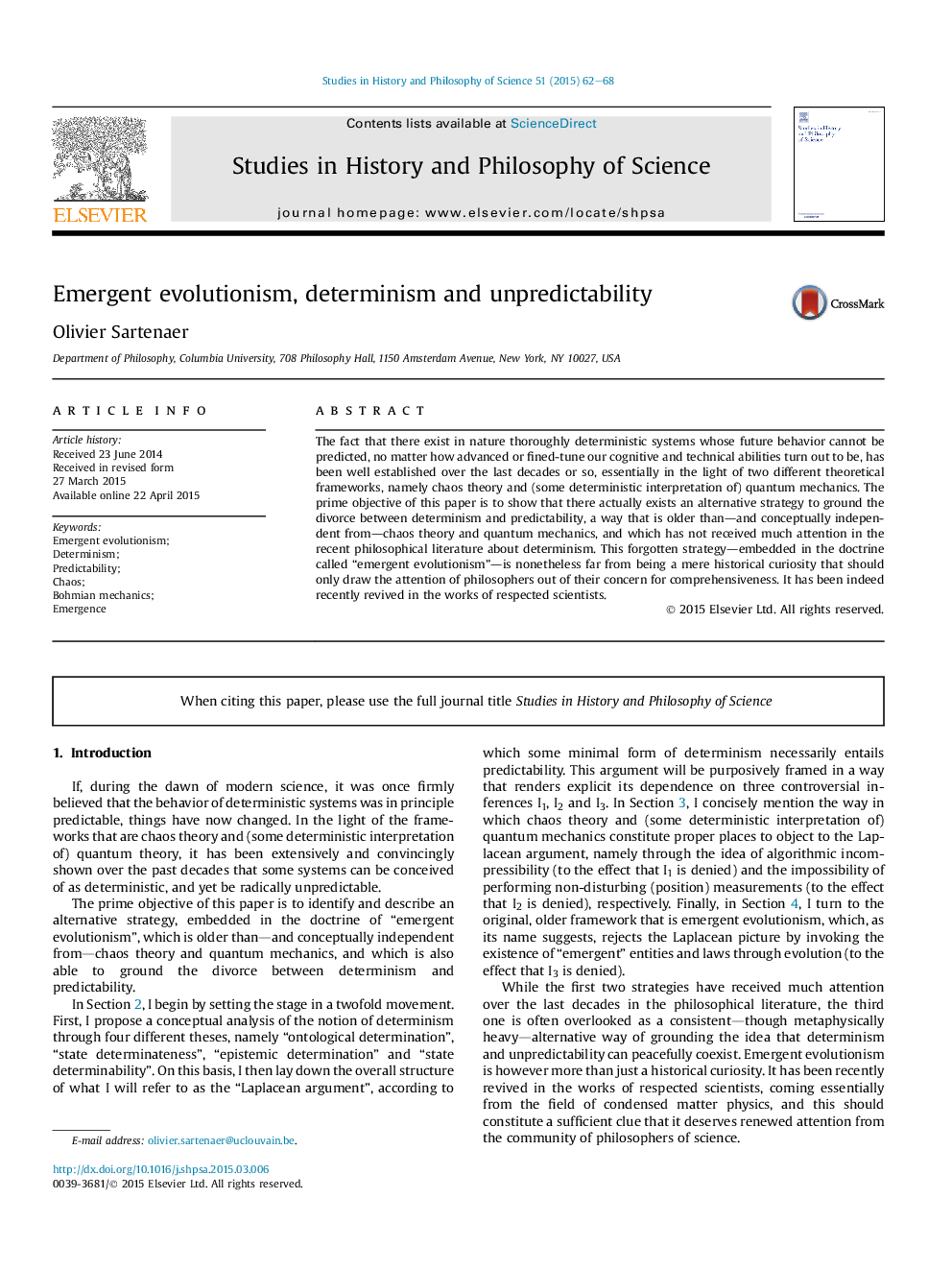| Article ID | Journal | Published Year | Pages | File Type |
|---|---|---|---|---|
| 1160483 | Studies in History and Philosophy of Science Part A | 2015 | 7 Pages |
•I put forward an analysis of the notion of determinism via four different theses.•I formulate an argument from ontological determinism to in-principle predictability.•I identify three possible, independent strategies to object to this argument.•Two of them—chaos and (Bohmian) quantum mechanics—are currently well-known.•A third one—emergent evolutionism—is identified, exposed and motivated.
The fact that there exist in nature thoroughly deterministic systems whose future behavior cannot be predicted, no matter how advanced or fined-tune our cognitive and technical abilities turn out to be, has been well established over the last decades or so, essentially in the light of two different theoretical frameworks, namely chaos theory and (some deterministic interpretation of) quantum mechanics. The prime objective of this paper is to show that there actually exists an alternative strategy to ground the divorce between determinism and predictability, a way that is older than—and conceptually independent from—chaos theory and quantum mechanics, and which has not received much attention in the recent philosophical literature about determinism. This forgotten strategy—embedded in the doctrine called “emergent evolutionism”—is nonetheless far from being a mere historical curiosity that should only draw the attention of philosophers out of their concern for comprehensiveness. It has been indeed recently revived in the works of respected scientists.
